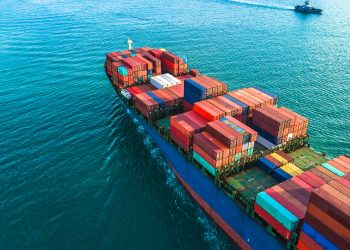Working together to foster safety and security in the maritime industry
 The U.S. Maritime Administration (MARAD) is constantly working to foster safety and security in the maritime industry, both domestically and internationally.
The U.S. Maritime Administration (MARAD) is constantly working to foster safety and security in the maritime industry, both domestically and internationally.
Recently, at the North Atlantic Treaty Organization (NATO) Maritime Security Seminar, I had an opportunity to collaborate and strengthen communication with our transatlantic maritime partners and share solutions on current maritime security issues and threats.
The NATO Ocean Shipping Transport Group discussions tackled both old and new threats, and MARAD remains fully engaged in meeting these challenges, particularly piracy.
For example, MARAD’s anti-piracy assessment team (APAT) helps U.S.-flagged merchant ships assess their vulnerabilities to piracy and shares best practices for prevention of piracy incidents.
While international efforts have been effective in reducing piracy off the Coast of Somalia –the setting for last year’s “Captain Phillips”– the threat of piracy in that region persists. However, piracy off the Coast of West Africa is taking different forms and will require new and different solutions. Any effective response to piracy requires long-term solutions and commitments both ashore and at sea, including constant vigilance and widespread use of continually updated management practices.
A new threat discussed among NATO partners is the danger presented by the increasing use of illegal GPS units that can be used by pirates to disrupt a vessel’s navigational systems, making them more vulnerable to attack. Coupled with the rapid increase in availability of cheap and portable jammers that disrupt navigational systems, this presents a real challenge to the maritime industry.



























































